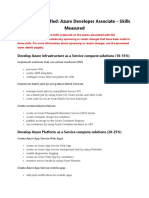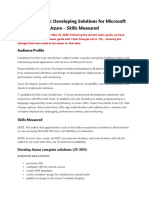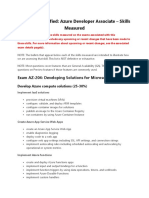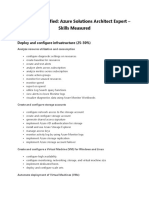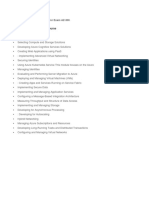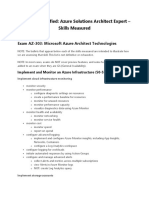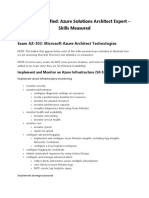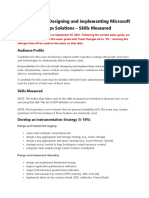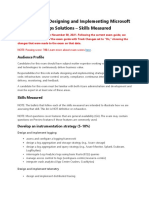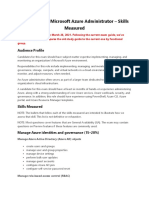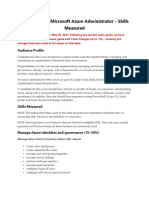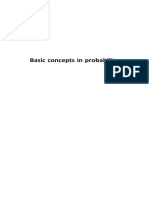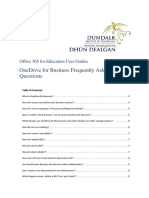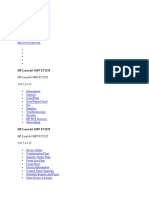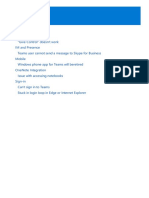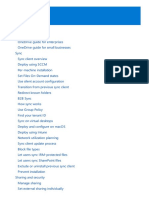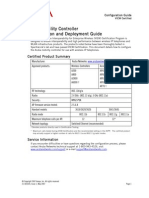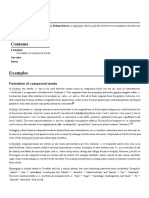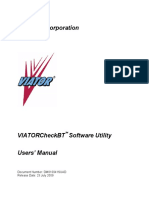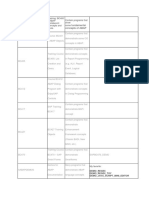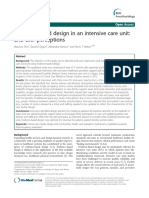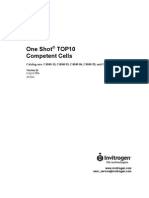0% found this document useful (0 votes)
128 views4 pagesAZ-203 Exam: Microsoft Azure Solutions Skills
The document outlines the skills measured in the AZ-203 certification exam for developing solutions on Microsoft Azure. It is broken into 6 main categories: developing Azure infrastructure and platform compute solutions, developing for Azure storage, implementing Azure security, monitoring and optimizing solutions, connecting to and consuming Azure and third party services. Each category lists specific tasks and skills that are covered in the exam.
Uploaded by
ganeshCopyright
© © All Rights Reserved
We take content rights seriously. If you suspect this is your content, claim it here.
Available Formats
Download as PDF, TXT or read online on Scribd
0% found this document useful (0 votes)
128 views4 pagesAZ-203 Exam: Microsoft Azure Solutions Skills
The document outlines the skills measured in the AZ-203 certification exam for developing solutions on Microsoft Azure. It is broken into 6 main categories: developing Azure infrastructure and platform compute solutions, developing for Azure storage, implementing Azure security, monitoring and optimizing solutions, connecting to and consuming Azure and third party services. Each category lists specific tasks and skills that are covered in the exam.
Uploaded by
ganeshCopyright
© © All Rights Reserved
We take content rights seriously. If you suspect this is your content, claim it here.
Available Formats
Download as PDF, TXT or read online on Scribd
/ 4
